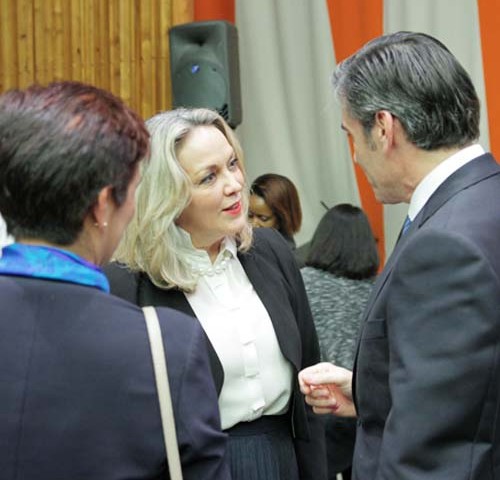- Have any questions?
- +88-01714063309
- info@sdnf.org.bd
The Need for Public-Private Cooperation in the 2030 Agenda
Mount Everest death toll rises to three
May 30, 2016
Cities are a shortcut towards equality
June 6, 2016Ambassador Maria Emma Mejia, Permanent Representative of Colombia to the United Nations
Colombia has played a leading role in the 2030 Agenda since the Rio +20 Conference where the idea of adding the “sustainability” component to development goals was taken forth and gave birth to the Sustainable Development Goals. It was incredible to see Governments together with civil society, the business sector and Global Compact working hard to bring together positions that at first seemed impossible to reconcile. The sustainable development agenda is, for the first time, a universal agenda, an agenda of great transformation and of inclusiveness. It is an agenda in which we decided to leave no one behind.
That is easy to say but is quite complex to achieve. The SDGs are not an agenda for developing countries; they are an agenda for all countries alike. This is much wider in scope than the previous MDGs. It is a universal Agenda, where developing countries will most likely find more challenges for its achievement, and thus will need support.
A crucial component in the success of 2030 Agenda is how to measure the results. It is essential that this exercise involves both national and local governments. In Colombia, we had the opportunity to design a National Development Plan aligned with the SDGs when the new government took office. We also created an Intersectorial High-Level Commission for the Implementation of the 2030 Agenda, whose core is composed by the Ministries of Planning, Finance, Foreign Affairs, Environment and Social Prosperity to ensure coherent and coordinated implementation of the Agenda.
The Sustainable Development Goals will be implemented in Colombia together with the peace agreement we hope to sign very soon. Sustainable development will play an important role in our post-conflict; we especially want to work on rural areas that have been left behind because of the conflict. We hope to get the business community involved in planning, designing, and cooperation—this task cannot be done by governments, or by the private sector, alone.
We need an inclusive and universal UN Development system that can implement and work within this new framework, and which will take into account the strengths and also the needs of the private sector.
The 2030 Agenda stresses the importance of coordinated strategic planning, implementation, and reporting, in order to ensure coherent and integrated support to the establishment of the new agenda by the United Nations Development System.
Our enormous responsibility is to not only not to leave no one behind but to understand that this responsibility is ours for years to come. We need to shape the support for the implementation of the Agenda in a way that it contributes to a better future for the people and the planet.



